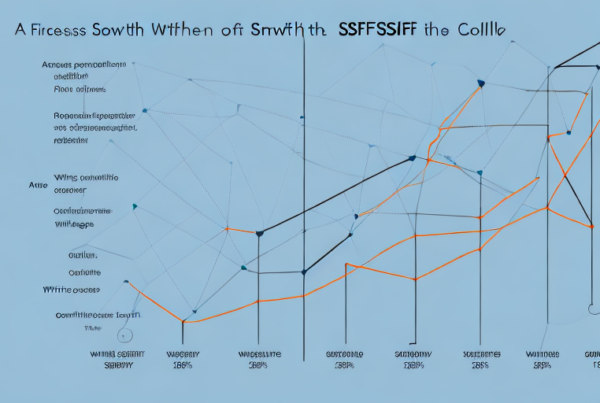The media has focussed on the risks of buying property with SMSF (self-managed super fund), particularly geared property, and whether it is really the right long-term decision for a member’s retirement.
SMSF property investments can be the right choice for some, but it’s not for everyone. Opportunities come with risks that are the same as any individual’s decision to make a personal or commercial property investment. There are, however, some risks that are unique to buying an SMSF property.
Setting up an SMSF to buy property within an SMSF is a tricky business that can come with various types of benefits. Buying property with SMSF funds can potentially be a safer financial bet than buying a property with savings from a regular bank account.
There’s no question that property can provide a financial reward for investors with capital growth and steady rental income. However, when it comes to buying a property with a self-managed super fund (SMSF property), the investment needs to be carefully considered.
This applies especially if you borrow money through an SMSF investment property loan due to the potential demand on the fund’s cash flow that is provided by a steady stream of contributions. Bank fees from the purchase can also offset income and cause financial strain. In hard times if the SMSF property loan investment cannot be leased out, the income from contributions can be used to pay for investment expenses. Money from rent could also be used to pay the tax, commercial fees, or other financial recourse from the commercial property managed super fund (SMSF property).
Fund members might encourage trustees to buy a property using a limited recourse borrowing arrangement. A limited recourse borrowing arrangement limits the penalty for missed loan repayments or limits fees and charges associated with income loss from residential or commercial lease issues.
The advantage of SMSF property investments is the generous tax concessions given to fund members. Rent from the property investment will be taxed at 15%, and capital gains if the SMSF property investment is sold can be as low as 10% while saving for retirement.
Capital gains are great for the pension phase of your strategy if your property is sold. Retirement benefits for each fund member from your property purchase are unlimited. Members of SMSF buy property with the gains, but also the risks, in mind.
Once an SMSF property is in the retirement phase and paying a pension, any rent and capital gains can be tax-free. On the other hand, because of these low tax rates, the benefits of negatively gearing (expenses of the property are greater than the rent received) an investment property can be less than if the investment property was held in your personal name, which lowers your taxable income considerably.
Also, insurance and whether a large illiquid asset like property will suit the SMSF member’s needs for their retirement must be considered. Selling a lumpy asset like property can take time and involve higher costs than liquid assets such as shares, which can normally be sold very quickly. The sale of the property with an SMSF may also result in a large inflow of funds all at once rather than a steady stream of income. This needs to be managed carefully if an SMSF property is paying a pension.
There are numerous strategies, and ways for property to form part of SMSF property investments and each SMSF fund must be carefully considered.
Direct investment
A common form of SMSF property exposure is a direct investment into a property. This can be in the form of either a residential property or commercial property. When buying an investment property with an SMSF’s cash, there are some important considerations that must be worked through, including:
-
- SMSF property trustees’ asset allocation and diversification.
- Potential rental income and property expenses.
- How close you are to retirement and the need for liquid assets to pay pensions.
- Unless the property is an actual business property (property used wholly and exclusively for business), SMSF property trustee related parties cannot use the property:
- If the property is a real business property, trustees may be able to work or run a business from the premises which are owned by the SMSF, provided the terms are conducted on an arm’s-length basis.
- Trustees may also be able to utilise the small business CGT concessions and contribution limits.
Indirect investment
Another way to gain exposure to the property for SMSFs is through indirect investment. Setting up a SMSF to buy property is not necessary in this case. This can include listed invested vehicles such as listed investment companies and exchange-traded. Managed investment trusts are also a common investment for SMSFs to gain exposure to property.
Investing indirectly may suit the SMSF’s needs more than a purchase of a property because it is relatively simple and most likely will not require a large amount of capital. It also allows SMSFs to get exposure to large value properties such as office blocks, shopping centres and industrial properties that would otherwise be out of reach. Investing in these products should be accompanied by appropriate advice.
SMSF Property Valuation
A SMSF is required to report its assets at market value as of 30 June as part of its annual accounts. As such, direct property is an asset that is not easy to value as the true market value only becomes apparent when the property is bought or sold.
An SMSF is not required to obtain an external valuation every year; a recent valuation is required if the property’s previous value is considered to be materially inaccurate or the value may have changed due to changes in market conditions, a natural disaster or capital improvements. SMSF auditors typically seek a new valuation every three years unless the property’s market value has materially changed due to the above factors.
Does property suit your SMSF?
Investing in property to fund your retirement is an option that might be suitable for your SMSF, but the complicated factors involved in purchasing property through an SMSF investment means you should seek out specialist advice to make sure it is done correctly.
SMSF trustees must be aware of the risks and returns associated with property investment, limited recourse borrowing arrangements (LRBAs) and the importance of considering their investment strategy and gaining specialist advice before making any decisions.
Number Super can help you understand how the different forms of property investment may or may not be relevant for your SMSF portfolio and the impacts it may have on you and your fund.




